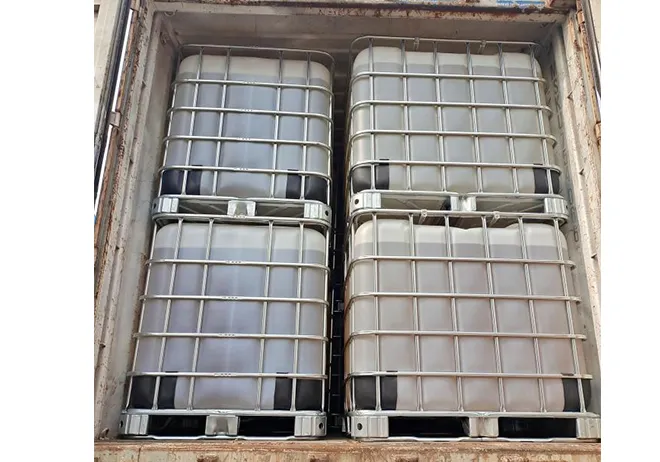
kinds of fertilizer
Understanding the Different Kinds of Fertilizer
Fertilizers are essential for successful gardening and agriculture, providing the necessary nutrients that help plants grow and thrive. They can be classified into two main categories organic and inorganic (or synthetic) fertilizers. Each type has its own advantages and disadvantages, and understanding these can help gardeners and farmers make informed decisions regarding their use.
Organic Fertilizers
Organic fertilizers are derived from natural sources, such as plants, animals, and minerals. They include compost, manure, bone meal, blood meal, fish emulsion, and seaweed extracts. Here are some benefits and characteristics of organic fertilizers
1. Nutrient Release Organic fertilizers release nutrients slowly, providing a steady supply to plants over time. This slow release minimizes the risk of nutrient leaching, which commonly occurs with synthetic fertilizers.
2. Soil Health Organic fertilizers contribute to soil health by improving its structure, water retention capacity, and overall fertility. They promote beneficial microbial activity in the soil, which is essential for nutrient cycling.
3. Environmental Safety As organic fertilizers are derived from natural sources, they are typically safer for the environment. They reduce the risk of chemical runoff into water systems, which can cause pollution and harm aquatic ecosystems.
4. Sustainability Using organic fertilizers aligns with sustainable agricultural practices. They can often be produced locally, reducing the carbon footprint associated with transportation.
However, organic fertilizers also have some drawbacks. They often contain lower concentrations of nutrients compared to synthetic options, meaning larger volumes may be needed to achieve the same effects. Moreover, the nutrient content of organic fertilizers can vary significantly, making it difficult to precisely control nutrient delivery.
Inorganic Fertilizers
kinds of fertilizer

In contrast, inorganic fertilizers are manufactured and typically contain concentrated nutrients in a readily available form. Common examples include urea, ammonium nitrate, superphosphate, and potassium sulfate. Here are some of their characteristics
1. Quick Nutrient Availability Inorganic fertilizers often provide nutrients that plants can absorb immediately, which can lead to faster growth and quicker results. This is especially beneficial in situations where rapid nutrient uptake is necessary, such as during the early growth stages of crops.
2. Specific Nutrient Ratios These fertilizers come in various formulations, allowing users to select specific nutrient ratios tailored to the needs of different plants. This precision can help in achieving targeted growth and productivity levels.
3. Cost-Effectiveness In general, inorganic fertilizers are more cost-effective than organic fertilizers on a per-unit nutrient basis. They are widely available and can be stored for longer periods without degrading.
However, inorganic fertilizers also pose several risks, including
1. Soil Degradation Over-reliance on synthetic fertilizers can lead to soil degradation by disrupting the natural microbial ecosystem. This can reduce soil fertility over time, compounding dependency on chemical inputs.
2. Environmental Impact The use of inorganic fertilizers can lead to nutrient runoff, resulting in water pollution, algal blooms, and detrimental effects on aquatic ecosystems. Over-fertilization can also lead to soil acidification.
3. Health Concerns There are concerns about the long-term health impacts of consuming food produced with synthetic fertilizers, although regulatory bodies typically establish safe limits for residues.
Conclusion
Choosing the right type of fertilizer depends on various factors, including the type of plants being cultivated, the specific nutrient needs of those plants, and the broader environmental and economic context. For sustainable gardening and farming practices, many experts recommend a combination of both organic and inorganic fertilizers, allowing growers to maximize plant health while also maintaining soil vitality. Ultimately, understanding the kinds of fertilizers available and their impacts on plants and the environment is crucial for anyone involved in gardening or agriculture. By making informed choices, we can optimize crop yields, protect our ecosystems, and contribute to a sustainable food system.
-
Understanding Synthetic Rubber OptionsNewsApr.27,2025
-
Trichloroisocyanuric Acid: Essential for Clean and Safe WaterNewsApr.27,2025
-
Sodium Dichloroisocyanurate: Key to Safe Water TreatmentNewsApr.27,2025
-
Sodium Acid Pyrophosphate: Essential in Modern Food ProcessingNewsApr.27,2025
-
Essential Water Treatment ChemicalsNewsApr.27,2025
-
Denatured Alcohol and Its Industrial UsesNewsApr.27,2025
-
The Versatile Uses of Sodium BicarbonateNewsApr.24,2025
Hebei Tenger Chemical Technology Co., Ltd. focuses on the chemical industry and is committed to the export service of chemical raw materials.
-

view more DiethanolisopropanolamineIn the ever-growing field of chemical solutions, diethanolisopropanolamine (DEIPA) stands out as a versatile and important compound. Due to its unique chemical structure and properties, DEIPA is of interest to various industries including construction, personal care, and agriculture. -

view more TriisopropanolamineTriisopropanolamine (TIPA) alkanol amine substance, is a kind of alcohol amine compound with amino and alcohol hydroxyl, and because of its molecules contains both amino and hydroxyl. -

view more Tetramethyl Thiuram DisulfideTetramethyl thiuram disulfide, also known as TMTD, is a white to light-yellow powder with a distinct sulfur-like odor. It is soluble in organic solvents such as benzene, acetone, and ethyl acetate, making it highly versatile for use in different formulations. TMTD is known for its excellent vulcanization acceleration properties, which makes it a key ingredient in the production of rubber products. Additionally, it acts as an effective fungicide and bactericide, making it valuable in agricultural applications. Its high purity and stability ensure consistent performance, making it a preferred choice for manufacturers across various industries.











